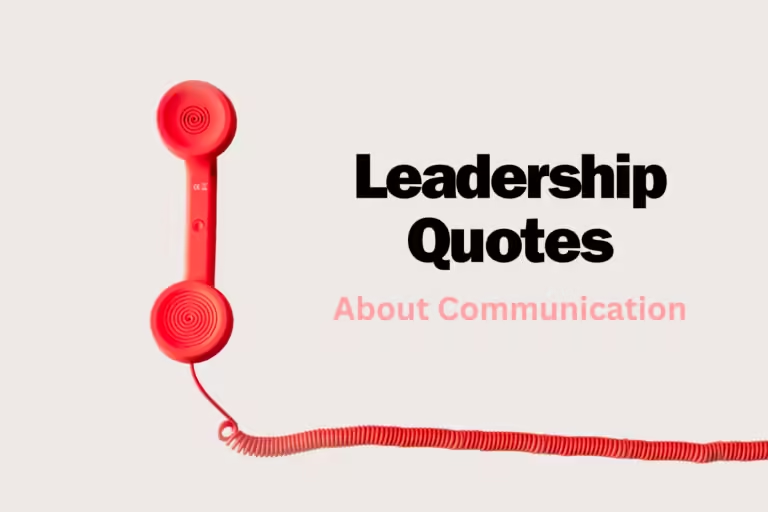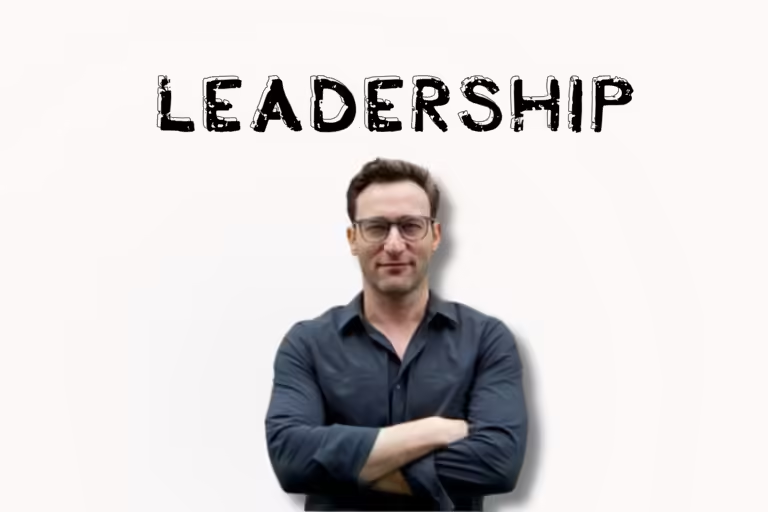What are Leadership Skills? Top 5 skills to develop as a successful leader.
Great leaders are not born but made. “skills” are something anyone can learn with the investment of their time and energy and commitment.
Many biographies revealed that effective leaders invest their energy & time (consciously or subconsciously) to develop key skills that empower them to be a successful leader. That’s good news because it means anyone can develop these skills to become a successful leader. If you want to be among the great leaders, take some time to work on your leadership skills mentioned below.
Table of Contents
Leadership Skills: Definition & why they are important?
Leadership Skills are strength and abilities of a leader, these are the tools in a leadership toolkit which a leader need while leading.
If you really want to lead successfully, you must learn about these leadership skills. It will not only build your personality as a leader but empower you to lead effectively and inspire others to achieve shared goals.
These skills are crucial in navigating today’s complex world, from communication and emotional intelligence to adaptability and decision-making. They foster innovation, drive change, and build resilient teams.
If you are serious about your own development as an effective leader in your organization or industry, here are the most important skills you should develop to reach that goal.
In this post, we’ll delve into the significance of leadership skills and how to cultivate them for personal and professional growth. Join us on a journey to unlock the power of leadership and realize your true potential.
5 Core leadership skills for effective leadership
Here we are extracting the top leadership skills every leader should possess to lead effectively to give clear direction, support initiative, conflict resolution, and decision making.
These skills will not only help you in the workplace but also distinguish you in your community and personal relationships.
Effective communication
Effective communication is the cornerstone of leadership. It includes the following factors:
- Clear & concise communication: It is an ability to simplify your message to the extent where anyone get it while providing the right level of details for the right audience to act. Miscommunication may lead to totally different results. You should be able to communicate your vision, expectations, and objectives in a way that resonates with others. it will minimize misunderstanding, enhance productivity & foster engagement and commitment towards shared goals or a vision.
- Active Listening: Active listening is a core skill any leader can develop. It is the ability to be fully present and engaged while listening. Fully pay attention to verbal and non-verbal communication.
- Inquisitiveness: It is the ability to ask open-ended questions. This not only prompt deeper reflection and exploration but also invite individuals to share their perspectives, ideas and experiences.
Learn more: Different pillars of excellent communication
Emotional Intelligence
It is an ability to recognize, understand, and manage one’s own emotions as well as to empathize with other’s emotions. An American Psychologist Daniel Goleman writes in his book Emotional Intelligence: that it is the ability to manage your feelings well, so these feelings are expressed appropriately and effectively. Its not about to suppress your emotions but to let them out in a healthy manner.
It’s simplified into four categories
- Self-awareness: means you understand your thoughts, emotions, and behavioral patterns. When you are fully aware and accept yourself completely with your strengths and weaknesses. It will not only give you authenticity but also help you build Trust.
- Self-management: is the ability to regulate one’s emotions, thoughts, and behaviors constructively. It involves techniques such as stress management, impulse control, and goal setting to achieve desired outcomes.
- Social awareness: is the ability to understand and empathize with the emotions, needs, and perspectives of others.
- Relationship management: is the skill of effectively interacting with others to build and maintain positive connections. It involves communication, conflict resolution, and the ability to collaborate and influence others
As humans are emotional beings, it is the core skill to develop as a leader. If you master this leadership skill it will not only increase your influence but also you can manipulate emotions as you want. It is an essential skill for building strong relationships, making sound decisions, and fostering collaboration and teamwork.
Strategic Thinking
It is the ability to analyze complex situations, anticipate future trends, and develop innovative solutions to achieve long-term goals. In simple words, planning ahead of time and making smart decisions to reach big goals.
It requires creativity, critical thinking, and the capacity to prioritize and allocate resources effectively.
According to Forbes, developing strong strategic thinking skills for leaders who want to navigate complex situations, capitalize on emerging opportunities, and drive innovation.
For all this, you also need to work on your time management skills, and your goals and priorities (in terms of urgent and important) remember urgent tasks are firefighting tasks they may require your immediate attention but don’t spend too much time otherwise you have no time for your long-term important goals.
It involves looking at the big picture, finding new ideas, and figuring out the best ways to achieve success in the long run.
Strategic thinking is so crucial that the Harvard Business Review identifies it as one of the six essential skills for effective leadership
Resilience
It is the ability to bounce back from challenges. This is one of the most important tool in your leadership toolkit.
No matter how well you’ve defined your tasks or whatever planning you’ve done. Sometimes, a sudden wrench from nowhere break your momentum and could leave you demotivated, testing your leadership skills.
But resilient leaders have the ability to
- Take it as a challenge,
- Learn from it
- Stay positive (to keep the momentum of the team going),
- Adapt their approach and
- Find ways to overcome obstacles
Ultimately becoming stronger and more capable as a result.
How to develop Resilience?
You can enhance your resilience by developing certain habits and adopting a mindset that helps you navigate adversity effectively. Here are some:
- Cultivate a Positive mindset: Focus on aspects of situation and find opportunities for growth.
- Learn from Setbacks: Instead of dwelling on failure, focus on what you can learn from them, reflect, identify areas of improvement and use them as opportunities for growth and development.
- Develop a problem-solving mindset: Break problem into smaller, manageable tasks and brainstorm potential solutions. Look for creative ways to overcome obstacles and adapt to changing circumstances.
- Set Realistic goals: Realign your goals. Set achievable targets align with your values and priorities. Break them into smaller actionable steps and celebrate your progress along the way.
- Practice Self-care: Take care of your physical and emotional well-being by eating healthy, exercise regularly, and engage in joyful activities. Take care of your mind by practicing mindfulness. Seek social support and practice breathing exercises to keep yourself calm.
People Management
People management is indeed one of the critical leadership skills for leaders. It involves effectively leading, motivating, and supporting individuals and teams to achieve common goals.
Leaders with excellent people management skills can identify the right people for the right tasks. They make the right teams based on their strength and weaknesses without judgment. Give them opportunities to excel team members in their strengths so they become polished gems.
Here’s why people management is essential for leaders.
- Build Trust & Strong rapport: Leaders who are good at people management build strong relationships with their team. It builds trust and supportive environment where individual feel valued and respect, lead to high morale & motivation.
- Empowering & Developing others: Strong leaders empower their team members by delegating tasks, providing opportunities for growth & development, offer constructive feedback & support. This encourages autonomy and a sense of accomplishment among the team.
- Conflict Resolution: Such leaders can handle team conflicts effectively and resolve disputes fairly and constructively.
- Handle workload effectively: This skill helps leaders to handle workload effectively within a team.
Conclusion
In summary, leadership skills are the tools in the toolkit of a leader. He must know when to use the right tool. From fostering effective communication to promoting adaptability and resilience these tools are the bedrock upon which strong leaders build successful teams. These are some of the most important leadership skills that are needed in today’s world.
By embracing the principles of empathy, vision, and continuous learning, leaders can inspire others to overcome challenges, seize opportunities, and achieve collective greatness.
As we embark on our leadership journeys, let us remember that leadership is not merely a destination, but a lifelong quest to empower, inspire, and uplift those around us. Together, with dedication and perseverance, we can create a future defined by collaboration, innovation, and shared prosperity.
FAQs
To improve your leadership skills, start by understanding your strengths and weaknesses. Seek out mentors, workshops, or online courses to target your development areas. Focus on clear communication, build trust with your team by being transparent and supportive, and encourage them to take initiative. Embrace change, think strategically, and adapt as needed. Actively seek opportunities to practice these skills and regularly ask for feedback to gauge your progress.
Effective Communication, Problem Solving, Strategic Thinking, Delegation, People Management, Resilience, Interpersonal Skills (Motivation, Empathy, Conflict Resolution, Relationship Building) are some examples of Leadership skills.
Developing leadership skills requires a focused approach. Start by honestly assessing your strengths and areas for improvement.
Consider feedback from others or self-reflection tools. Seek out learning opportunities like workshops, mentorship programs, or online resources that align with your development goals. Practice communication skills by actively listening and clearly expressing yourself. Build trust by being reliable and showing genuine interest in your team. Embrace challenges as opportunities for growth, think strategically, and don’t be afraid to experiment with new solutions.
Here’s a very rough cost range to give you an idea:
- Short Workshops: $300 – $2,000+
- Executive Coaching: $250 – $500+ per hour
- University Programs: $1,500 – $20,000+
- Online Courses: Free – $500+
Effective Communication, Empathy and Strategic Thinking are the 3 most important and strongest Leadership skills any leader can have.






